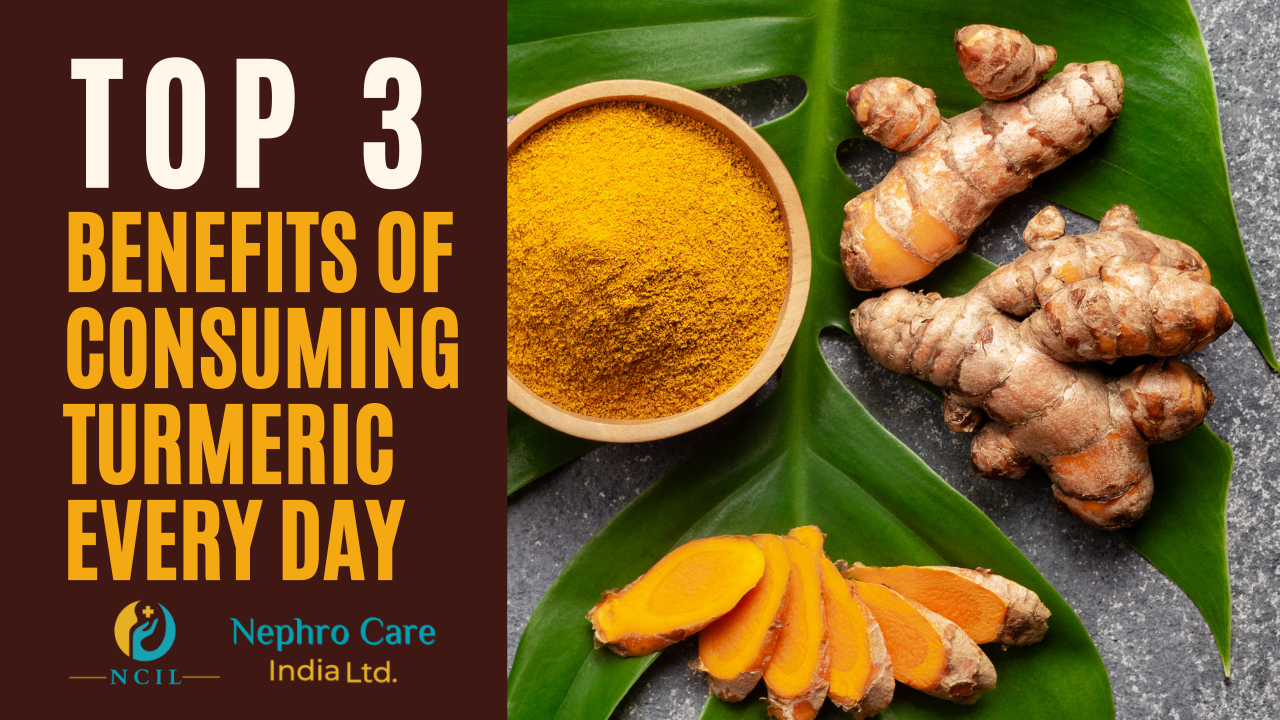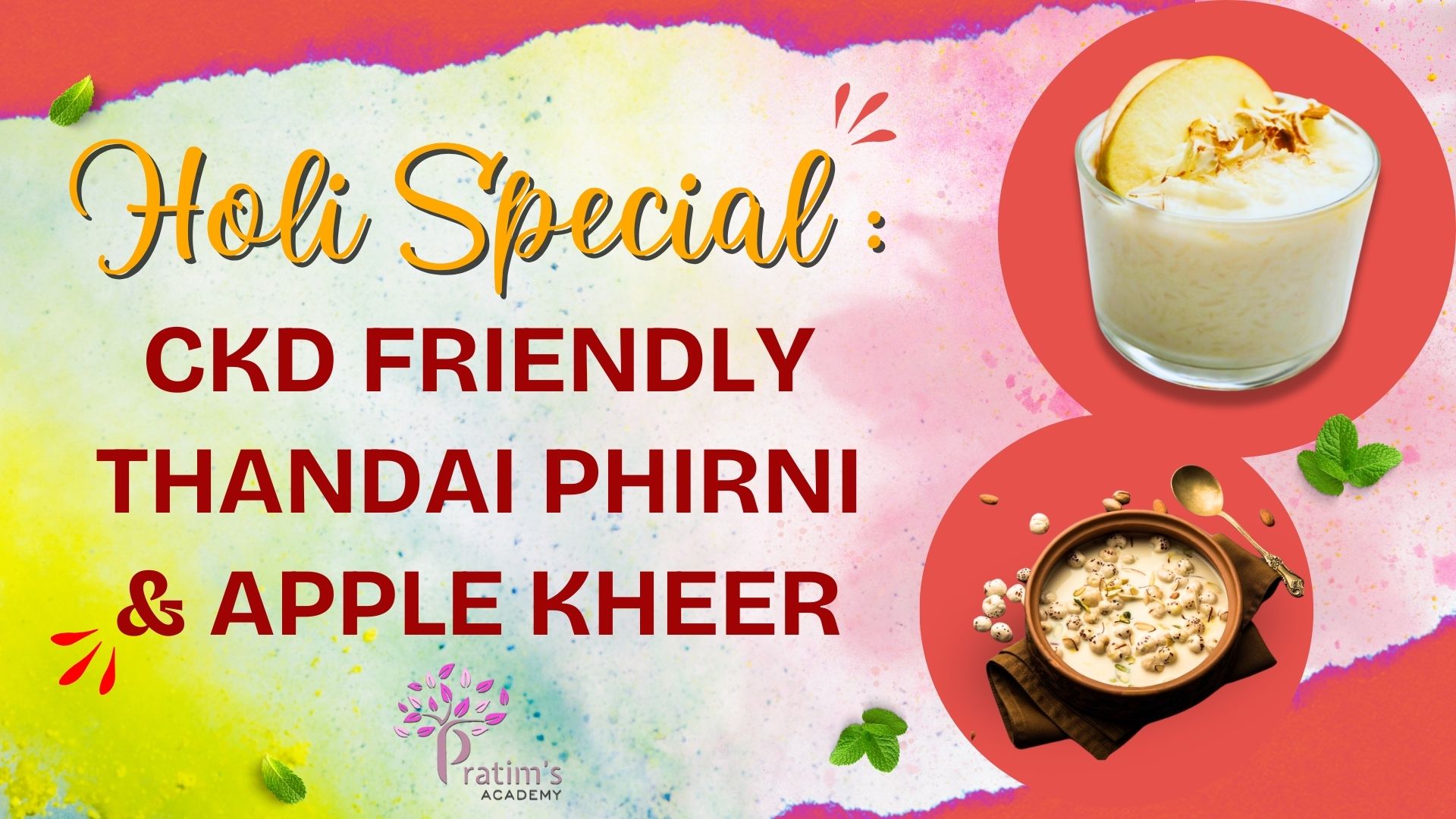
- 436
- 0
Top 3 Benefits of Consuming Turmeric Every Day
The yellow-orange spice found in most Indian dishes is turmeric and due to the many advantages associated with it, it has attracted a lot of attention. The chemical compound mainly responsible for the therapeutic effects of turmeric is curcumin. Here are the top three health benefits of daily intake and how one can add it to their daily meals.

Top 3 health benefits of turmeric:
Powerful Anti-Inflammatory Properties
Chronic inflammation is associated with various diseases such as heart diseases, cancer, and Alzheimer’s disease. Curcumin is a compound found in turmeric, and it exhibits strong anti-inflammatory properties. Several studies have demonstrated the ability of curcumin in preventing inflammatory molecules from working. Consuming curcumin frequently may help to reduce inflammation and, therefore, decrease the chance of developing these chronic illnesses.
How to Incorporate: You can include one teaspoon of turmeric powder in your regular smoothies, soups, or stews. It is also possible to prepare a calming tea by boiling water with turmeric and ginger and sweetening the tea with honey.
Rich in Antioxidants
Turmeric is also an antioxidant and it works to minimize the amount of free radicals that circulate within the system. These are unstable molecules that can trigger an oxidation process that harms body cells and therefore accelerates the aging process and other diseases. Curcumin does not only scavenge the free radicals but also enhances the body’s antioxidant capability.
How to Incorporate: Add turmeric to roasted vegetables, salad oils, and hummus and dips. Another tasty preparation is Golden milk; a milk-based drink with turmeric, black pepper and spices.
Supports Brain Health
Curcumin has been shown to cross the blood-brain barrier and has neuroprotective properties. It can boost levels of brain-derived neurotrophic factor (BDNF), a protein that supports the growth and survival of neurons. Low levels of BDNF are linked to depression and Alzheimer’s disease. Consuming it may help delay or even reverse brain diseases and age-related cognitive decline.
How to Incorporate: Use turmeric as a seasoning in your cooking. It pairs well with rice, beans, and lentils.
For more tips on using turmeric, join our diet group👉👇
Practical tips for daily turmeric consumption:

- Pair with Black Pepper: Curcumin has poor bioavailability, thus, it is advisable to take turmeric with black pepper. Curcumin when combined with black pepper has enhanced bioavailability.
- Fat Soluble: Curcumin is lipophilic, meaning it can dissolve and be partitioned into fats or oils. Consume it with fat, like the healthy fats coconut oil, olive oil, or avocado to enhance absorption.
- Start Small: Start with small amounts to ensure your body can tolerate it. Gradually increase the quantity as you get accustomed to its taste and effects.
Limitation of taking turmeric :
Certain individuals are advised to avoid turmeric, including:
- Pregnant and breastfeeding individuals.
- Those undergoing chemotherapy.
- Individuals with liver or bile duct issues.
- People on anticoagulant or antidiabetic medications.
- Individuals who have had surgery in the last two weeks.
Medications that should not be taken with turmeric:
It can interact with various medications and supplements. People taking the following should consult with a doctor before using:
- Blood-thinning medications and supplements.
- Antidiabetic medications
- Supplements that lower blood glucose levels
- Chemotherapy drugs
- Medications metabolized by CYP450 enzymes.
- Hormone replacement therapy.
- Medication for gout.
- Menopausal hot flashes medication
If you consume turmeric habitually, you can easily take advantage of the product’s anti-inflammatory, antioxidant, and cognitive properties. There are many more ways of taking this spice into your body as a cooking spice, in beverages, or in supplement form to have various health benefits.
Comment
Check Your EGFR
***We Promise, no spam!






